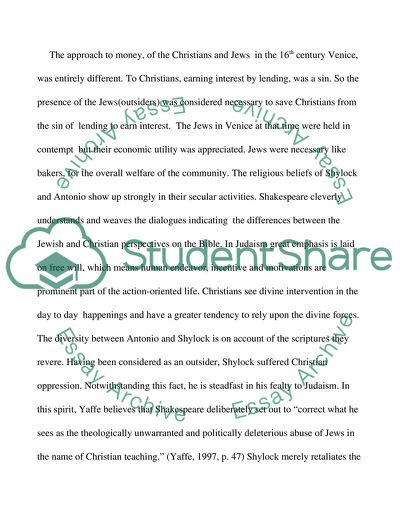Cite this document
(How Does Shakespeare Present the Outsider in Othello - the Moor of Ven Book Report/Review, n.d.)
How Does Shakespeare Present the Outsider in Othello - the Moor of Ven Book Report/Review. Retrieved from https://studentshare.org/literature/1561615-how-does-shakespeare-present-the-outsider-in-othello-the-moor-of-venice
How Does Shakespeare Present the Outsider in Othello - the Moor of Ven Book Report/Review. Retrieved from https://studentshare.org/literature/1561615-how-does-shakespeare-present-the-outsider-in-othello-the-moor-of-venice
(How Does Shakespeare Present the Outsider in Othello - the Moor of Ven Book Report/Review)
How Does Shakespeare Present the Outsider in Othello - the Moor of Ven Book Report/Review. https://studentshare.org/literature/1561615-how-does-shakespeare-present-the-outsider-in-othello-the-moor-of-venice.
How Does Shakespeare Present the Outsider in Othello - the Moor of Ven Book Report/Review. https://studentshare.org/literature/1561615-how-does-shakespeare-present-the-outsider-in-othello-the-moor-of-venice.
“How Does Shakespeare Present the Outsider in Othello - the Moor of Ven Book Report/Review”. https://studentshare.org/literature/1561615-how-does-shakespeare-present-the-outsider-in-othello-the-moor-of-venice.


